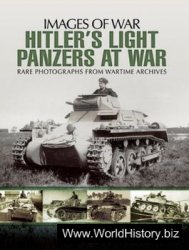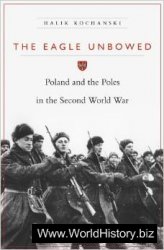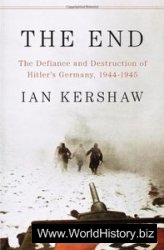The Roman army seems curiously modern with its professionalism, structured bureaucracy and detailed military organization. Indeed, John Keegan has called it the ‘mother-house’ of modern armies. It is not surprising that this army, which had such an impressive record of success, has often played a part in modern analysis of the nature of war and the impact of military practices and warfare on society. However, the Roman army does not fit easily into any pattern or theory derived from analysis of the armed services of communities in different eras, and its diversity and close links with a unique society and culture make generalizations very difficult. Furthermore, we should remember that the army of the imperial period had been initially moulded to suit the wishes and needs of one man, Augustus. He determined its size, structure, disposition and command, and in this he had at least one eye on the straightforward matter of his own survival. Augustus engaged in frequent warfare and kept personal control of his army, which he stationed permanently in the provinces, especially Germany, the Danube lands and the east. In this he influenced the direction of Rome’s military and strategic interests for generations to come, and indirectly the future course of European history. Yet he managed to combine his proclaimed role as a great conqueror with a system of government largely free from the trappings of military autocracy.
From this complex legacy emerged significant features that were to have enduring importance: above all, the idea of professional, specialist soldiers paid by the state, who earned rewards by their service and an entitlement to a kind of pension on discharge. Increasingly legionaries were recruited from outside Italy, and large numbers of non-Romans were also accepted to play an integral part in the military as auxiliaries. On completion of their service these men received citizenship for themselves and their children, and there was a significant degree of assimilation and integration into the Roman way of life. There was also an avenue of social mobility through promotion in the army to the rank of centurion and above. It was a conspicuous achievement to recruit this army largely from subject peoples and to preserve its loyalty and commitment for over four centuries in the west.
The Romans developed a framework of military organization and a pattern of thorough training throughout the army, and commanders exploited this by using battlefield tactics that involved the simultaneous operation of infantry and cavalry and the deployment of reserves. With its highly developed unit loyalty, excellent ordnance, technical support, medical service and effective siege artillery, the army had an ability unparalleled in the ancient world to fight long campaigns and wear down an enemy. In response to changing conditions, tactical thinking could be flexible and adaptable, and the army’s skill on campaign exemplified Maurice’s maxim in his Strategicon:‘Warfare is like hunting. Wild animals are taken by scouting, by nets, by lying in wait, by stalking, by circling round, and by other such stratagems rather than by sheer force’ (Book 7). Not that the Romans avoided the use of force, and it was the reputation of their tough and seemingly invincible army that sustained the diplomacy they chose to employ on occasion. As Vegetius pointed out, ‘those who seek peace must prepare for war’ (Epitome of Military Science, 3, Preface).
This professional army was the largest state-sponsored organization in the ancient world and was a perpetual burden on provincial communities whether in war or in peace. They sustained its immense cost through the payment of direct taxes and other irregular exactions, and the presence of soldiers often brought misery to civilians, especially those living along main roads or near military camps that became permanent structures. Not for the last time in history a government proved unable to restrain its own agents. However, the army’s presence was two-edged since it could also provide a stimulus to the local economy and create fresh activity in its wake. As soldiers formed unions with local women and produced children they became more integrated into the local society of the settlements that developed round the military camps in parts of the empire. In some cases these settlements survived to become important cities and capitals in the modern world. Furthermore, veteran soldiers often chose to settle close to where they had spent their military service. Not only were they Roman citizens, but they also had experience and connections that could potentially enhance the community where they lived.
From the time of Augustus the Roman emperor was effectively commander-in-chief of the army, had complete control of the military resources of the state, made all decisions on war and peace, and commanded in person on major campaigns. Yet, although he was often depicted in the dress of a Roman general, he was not part of a warrior elite, and even in the later third century society in Rome was not really militaristic. In fact the emperor was symbolically a military leader who ruled in a largely civilian context and made sure that his military commanders formed no military hierarchy. Indeed, army commanders were rarely specialist military men, and many senators and equestrians were not involved in military affairs at all. The professional army protected a civilian political structure in which the soldiers and their commanders had no direct say by virtue of their military role. Only in times of rebellion and civil war could the army make a direct impact on politics, though of course successful warfare against foreign peoples could enhance an emperor’s political standing. It was not until the later third century that a clique of tough military officers appeared whose support was needed to fight Rome’s wars and give government the necessary credibility to survive. By this time an emperor’s capacity to rule was virtually tantamount to ability in military command, partly because from the late first century emperors had assumed a more active role in military command by taking charge of major campaigns, and therefore found it impossible to distance themselves from military failure.
Throughout the first three centuries of the imperial period the Romans engaged in exceptionally vigorous and aggressive warfare; campaigns were conducted with a ruthless determination, and the army was capable of inflicting enormous casualties even with the rather primitive weapons of destruction in the ancient world. New territory was added regularly either by conquest or by more peaceful assimilation and annexation. The Romans recognized no boundaries, crossing the ocean to invade Britain, the Danube to attack Dacia, and the Euphrates to annex Mesopotamia. The destruction and loss of life caused by the Roman army in the pursuit of imperialist goals are beyond calculation. Entire populations were killed or sold into slavery or deported and brutalized; cities that resisted sieges were subjected to systematic pillaging and destruction. In the early Republic, warfare was an ingrained part of Roman culture; campaigning was seasonal for the citizen-soldiers, battle was an integral part of life, and excellence in war was a great attribute. Under the emperors warlike instincts were less prevalent, and many more senators than in the Republic had little if any military experience. Nevertheless, there was still a general interest in warfare and army command, and many equites now had more extensive army careers. In particular, there was no doubt among eminent Romans about the imperial mission and they were not concerned to justify the morality of conquest; they believed that it was right to protect and expand imperial territory and they did not think about the cost. They simply expected the army through successful warfare to impose the physical infrastructure of imperial government and stable rule, whose benefits were self-evident to them. The propertied elite in the provinces accepted the army and the imperial system on which they relied for support, since they had no other credible means of preserving order or protecting themselves, and cooperated in assisting Roman local administration.
Emperors smoothed over the more questionable aspects of the army’s role in the Roman world by skilfully using the means at their disposal to disseminate favourable information and shape public opinion. They systematically presented to the Roman people and provincial communities their role as leaders in war, and the army’s record of military success, which involved both the defence and extension of imperial territory. The Romans seemingly understood that propaganda has to be comprehensible at various levels, through the cumulative impact of the repetition of relatively simple messages. Their methods and themes were remarkably coherent and consistent, and developed organically from what had already been done. Some of the methods, especially the use of patriotic slogans and formal military displays and ceremonies, became a significant part of the propaganda employed by states right up to the present day. Indeed, what we may call the emotional impact of the Roman army is still important, and Hollywood screenwriters and film-makers have appreciated and exploited not only the army’s military prowess, but also its glittering appearance as a disciplined and well-accoutred force splendidly suited for pomp and spectacle.
In the Roman empire an effective army represented control, power and the ability to govern consistently. This army was relatively unobtrusive in political terms but placed enormous demands on the state to organize its pay and support. From the mid-third century the army lost some of its effectiveness in the face of numerous foreign invasions and internal rebellions. As political instability increased, the army became more obviously the determining factor in politics. Diocletian re-established strong government and successfully reorganized the army, which was able once again to reassert Roman territorial integrity. But the continuation of the empirewide recruiting of a professional army and a probable increase in the number of soldiers confirmed the importance of revenues organized by the central government. The quest for secure sources of funding became paramount as the role of the army and its demands assumed ever greater importance in the life of the empire. It is significant that Diocletian tried to improve tax collecting through changes in the provincial system and to develop a system of paying the army in kind. In the east, new ways were found to fund the army, and this was a crucial factor in the survival of the eastern empire with its capital at Constantinople. In the west, the people of Italy had long since lost the tradition of bearing arms, and when the expensive army could no longer be maintained warlords with private armies appeared who suited their own interests. As the soldiers who had sustained the burden of defending and patrolling the empire melted away, much of the infrastructure collapsed with them. Many years of violence, dislocation and decline were to pass before anything remotely comparable could be put in its place.




 World History
World History









